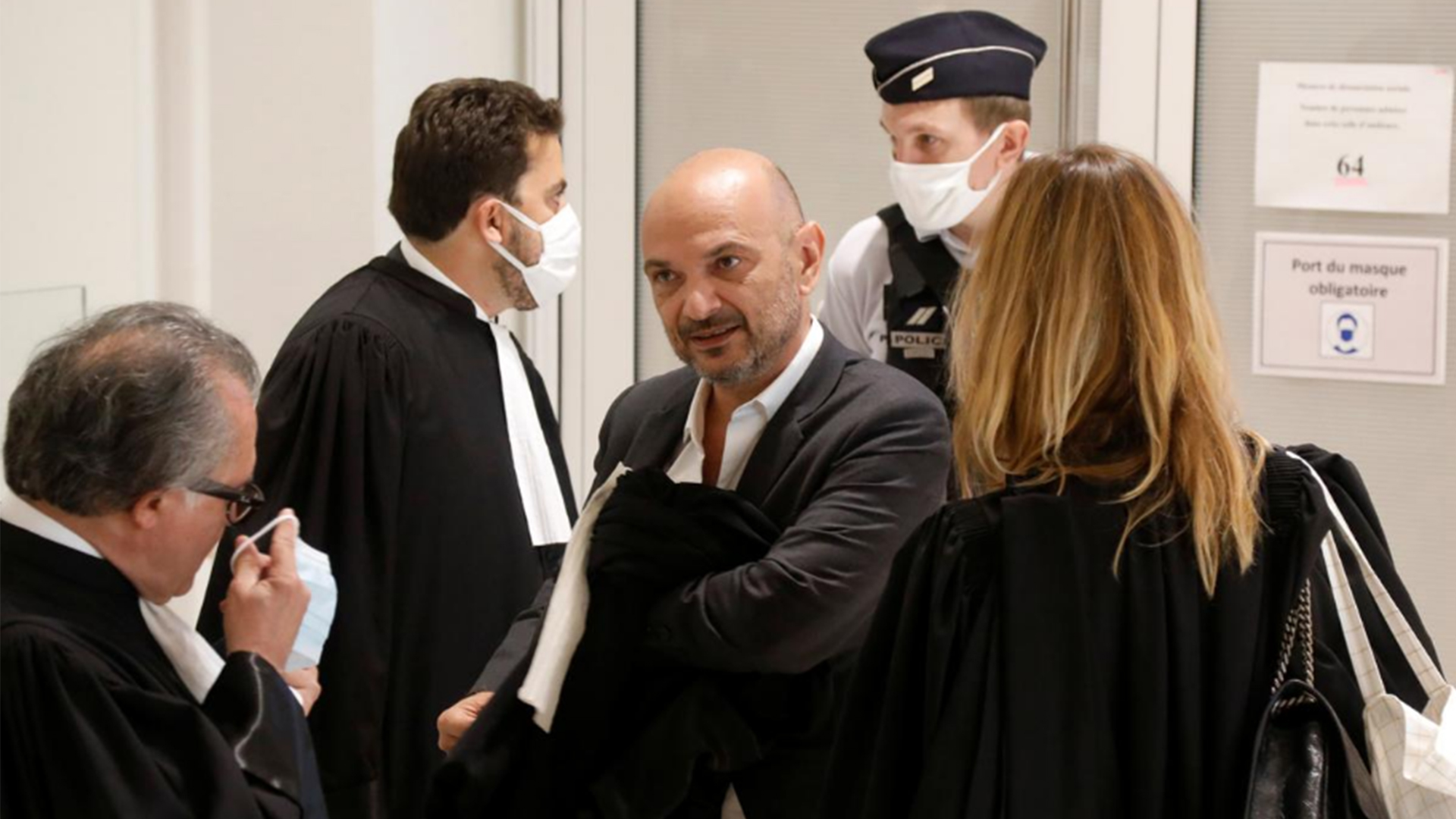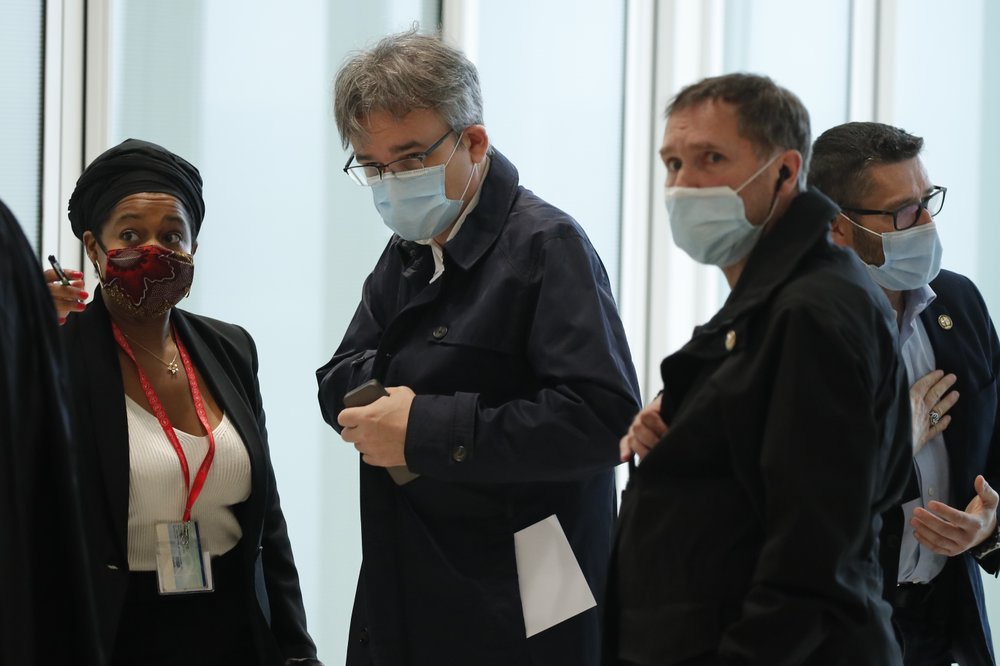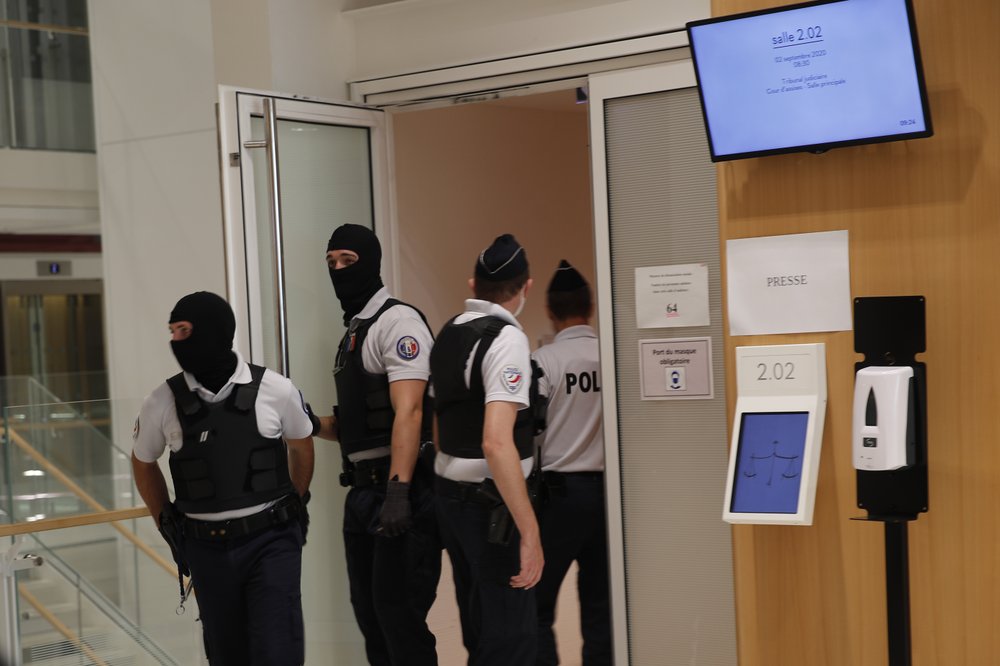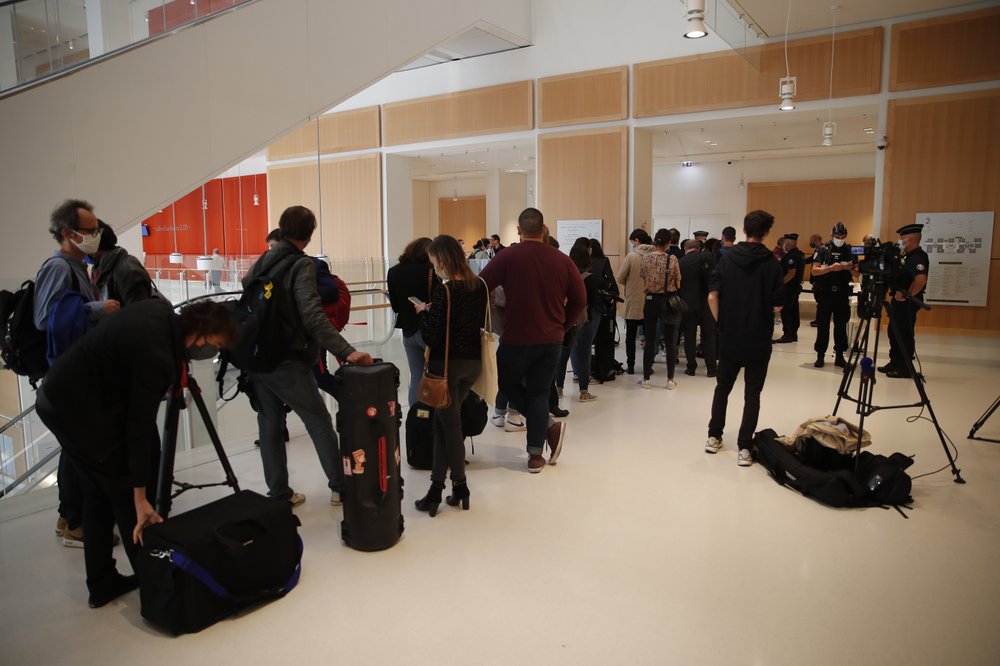00:38

Thirteen men and a woman accused of helping jihadist gunmen attack the French satirical weekly Charlie Hebdo and a Jewish supermarket went on trial Wednesday, over five years after days of terror that sent shockwaves through France.
The attacks that began on January 7, 2015 sparked a series of jihadist attacks on French soil, including "lone wolf" killings by people said to be inspired by the Islamic State group that have then claimed more than 250 lives.
Charlie Hebdo, in a typically defiant move in its Wednesday issue, republished cartoons of the prophet Mohammed that had angered Muslims around the world.
The trial got underway at a special court in Paris and will over the next two-and-half-months hear from some 150 experts and witnesses in hearings that will again open up one of the most painful chapters in France's modern history.

Satirical newspaper Charlie Hebdo's chief editor, Laurent Sourisseau, known as Riss, center, arrives at the courtroom for the opening of the 2015 attacks trial in Paris, France, September 2, 2020. /AP
Satirical newspaper Charlie Hebdo's chief editor, Laurent Sourisseau, known as Riss, center, arrives at the courtroom for the opening of the 2015 attacks trial in Paris, France, September 2, 2020. /AP
Although the three assailants were killed by police, prosecutors have rejected claims that the trial will focus only on "little helpers" suspected of providing weapons or organisational support.
'Courageous move'
Twelve people, including some of France's most celebrated cartoonists, were gunned down on January 7, 2015, when brothers Said and Cherif Kouachi stormed the paper's offices in eastern Paris.
A day later, Amedy Coulibaly, who became close to Cherif Kouachi while they were in prison, killed a 27-year-old police officer, Clarissa Jean-Philippe, during a traffic check in Montrouge, outside Paris.
Then on January 9, Coulibaly killed four men, all Jews, during a hostage-taking at the Hyper Cacher supermarket in Paris. He recorded a video saying the three attacks were coordinated and carried out in the name of the Islamic State jihadist group.
Coulibaly was killed when police stormed the supermarket. The Kouachi brothers were killed when officers carried out a nearly simultaneous operation at the printing shop where they were holed up in Dammartin-en-Goele, northeast of Paris.

French police officers guard the courtroom before the 2015 attacks trial in Paris, France, September 2, 2020. /AP
French police officers guard the courtroom before the 2015 attacks trial in Paris, France, September 2, 2020. /AP
"We will never lie down. We will never give up," Charlie Hebdo director Laurent "Riss" Sourisseau, who was wounded in the attack and will attend the trial, wrote in an editorial published Wednesday.
The publication of the cartoons drew fresh condemnation from Pakistan's foreign ministry, which said the decision to print them again was "deeply offensive."
But French President Emmanuel Macron defended the "freedom to blaspheme" and paid tribute to the victims of the attack.
Weapons and ideology
The trial was originally set for last spring but was delayed by the coronavirus crisis that shut down most French courthouses.
Of the 14 suspects, three are being tried in absentia: Hayat Boumedienne, Coulibaly's girlfriend, and two brothers, Mohamed and Mehdi Belhoucine, all of whom fled for IS-controlled areas in Syria or Iraq just days before the attacks.
The Belhoucine brothers were reportedly killed while fighting alongside IS, while French officials suspect Boumedienne is on the run in Syria. Arrests warrants remain outstanding for all three.

Journalists queue to enter the courthouse before the 2015 attacks trial, in Paris, France, September 2, 2020. /AP
Journalists queue to enter the courthouse before the 2015 attacks trial, in Paris, France, September 2, 2020. /AP
Mohamed Belhoucine and Ali Riza Polat, a French citizen of Turkish origin, face the most serious charges of complicity in a terrorist act, which carried a a maximum sentence of life in jail.
Most of the other suspects are on trial for association with a terror group, a crime that comes with a prison sentence of up to 20 years.
The attacks were also seen as a massive intelligence failure. French authorities ended a phone tap on one of the Kouachi brothers a few months before they stormed the editorial offices. At least one had trained with al-Qaida in Yemen and been convicted of an earlier terrorism offense. The brothers walked away from the carnage they had caused, escaping easily and drove through multiple dragnets before being trapped two days later.
"The government failed. If the intelligence services had done their job, this would not have happened," said Isabelle Coutant-Peyre, lawyer for the only person in court facing a life term. "The victims don't just want a guilty verdict, but real justice. The truth must come out. It's not a justice of vengeance, but a justice to know."
Given its historical importance, the trial at the Paris courthouse will be filmed for France's official archives, a first for a terror trial. It is scheduled to run until November 10.
(With input from AFP)